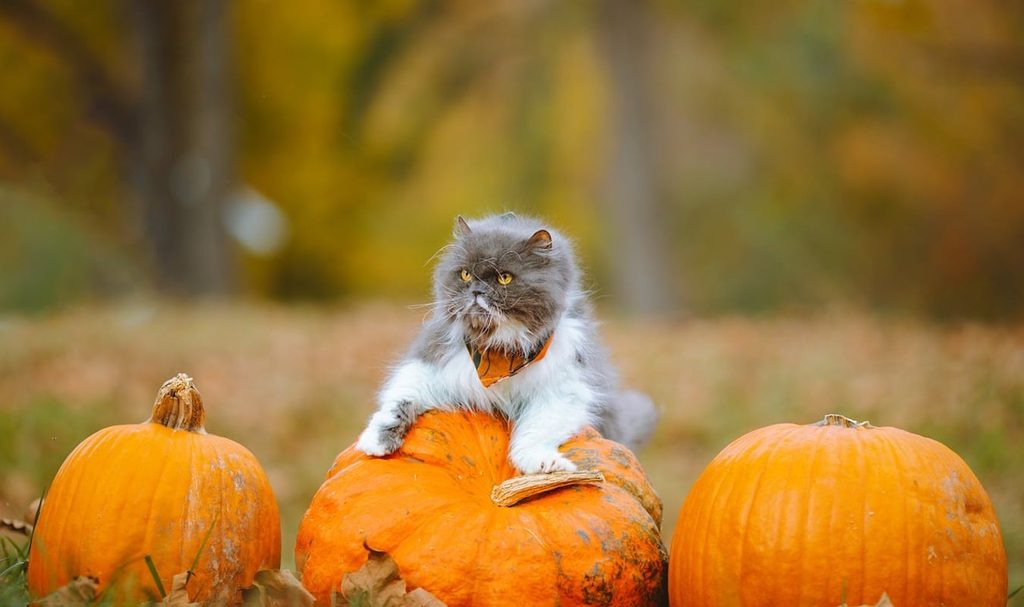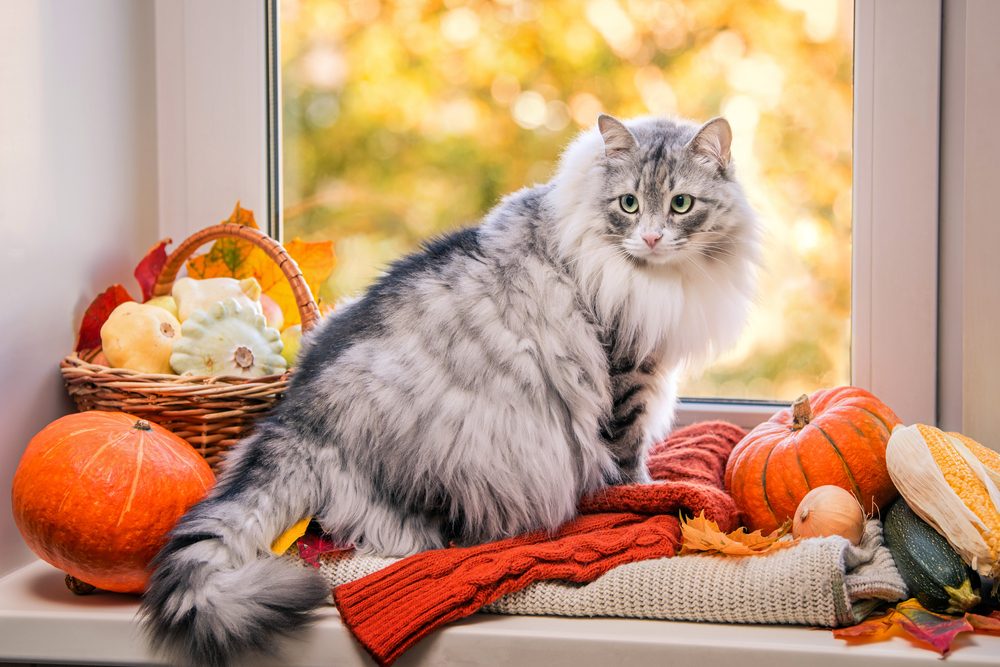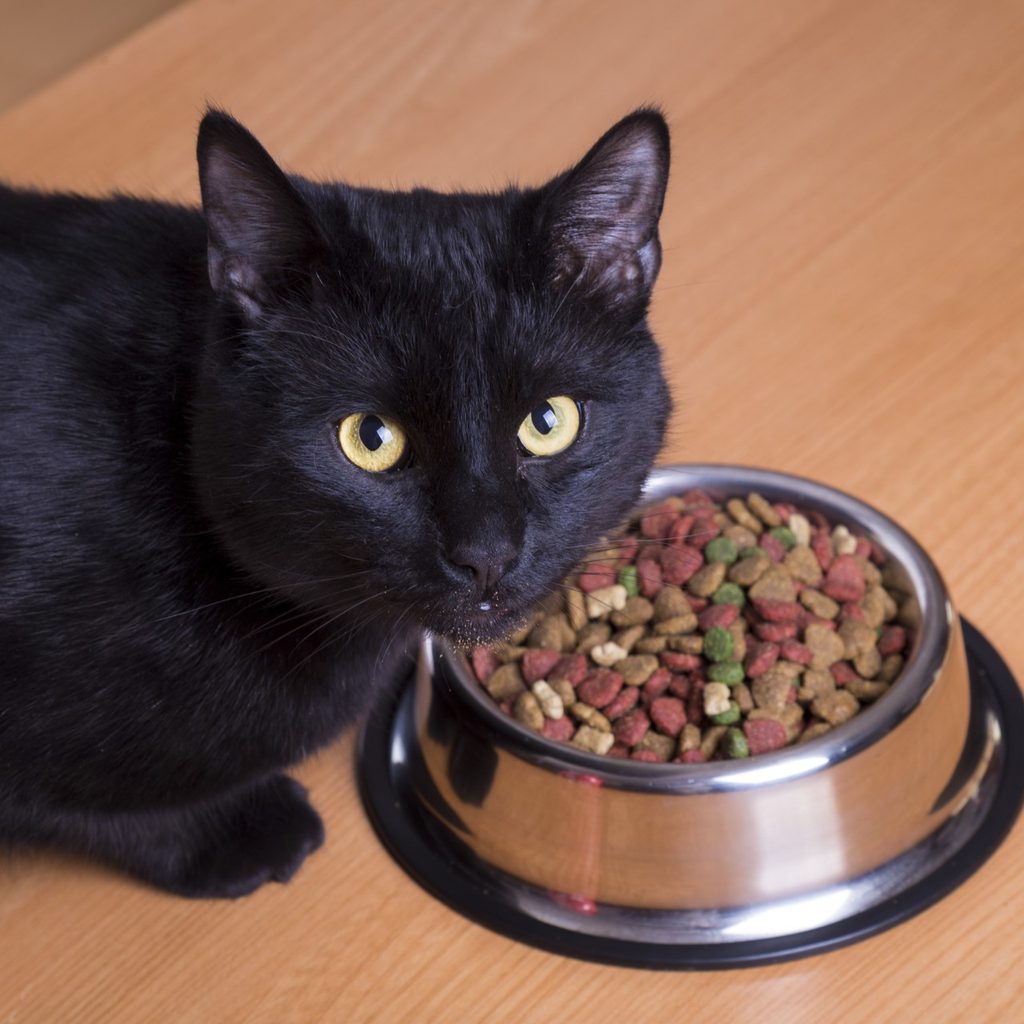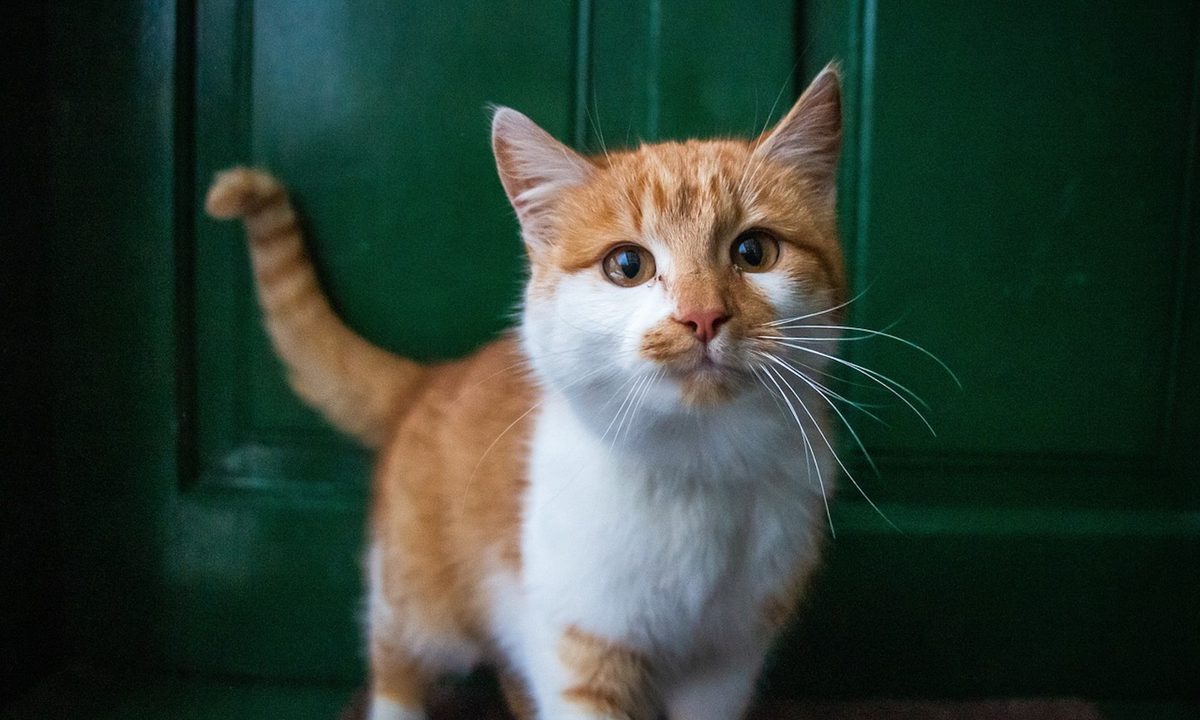With the crisp outside air, the National Dog Show on TV, and a feast waiting on the dining room table, it’s hard not to feel festive. Odds are, your pets are getting in the Thanksgiving mood, too! Plenty of cats and dogs are drawn to the kitchen in late November, and it’s easy to see why.
But can cats have turkey on Thanksgiving? It’s only natural to want to share holiday festivities (and turkey) with your furry friend, and Thanksgiving dinner is no different. Fortunately, you’ll be glad to know that many human foods are approved for feline consumption, too. You may have to prepare ingredients a certain way, so read carefully!
Can cats eat Thanksgiving turkey?

Cats eat poultry in commercial cat food all the time, so it makes sense that cats can also eat turkey. In fact, turkey meat can be a healthy and lean protein choice for pet cats, but you need to follow a few rules when sharing a slice from the carved bird.
Although the meat is wonderful for cats to eat, the bones and skin are not. Bones can pose a choking hazard and can have dangerously sharp edges if they break, so look carefully before sharing a piece of turkey with your feline friend. Turkey skin, on the other hand, is high in fat, which can cause dangerous pancreatic problems even in healthy cats. Lastly, be sure to only give your kitty plain meat that hasn’t been seasoned or touched other ingredients like stuffing. These ingredients may be yummy to people, but they can upset animals’ stomachs even in small quantities.
Can cats eat dark meat?

The age-old debate about dark versus white meat is a “tail” as old as time, but odds are your cat will happily eat either. Both are delicious and packed with protein. Some cats may prefer dark meat because of its higher fat content, but kitties should only eat this type of meat in moderation for the very same reason. Eating too much fat quickly can cause life-threatening health conditions, so be sure to limit your cat’s dark meat intake.
Dangers of Thanksgiving turkey for cats

Your cat may not be aware of it, but they take several major risks when having a bite of Thanksgiving turkey. Poultry products like turkeys and chicken can contain bacteria like salmonella and listeria when prepared incorrectly, while commercially processed turkeys often contain spices, herbs, seasonings, and even extra salt. These are all unsafe for cats to eat.
As with all good things, moderation is key. The Thanksgiving foods that are safe for cats can still cause dangerous health problems if eaten in excess, so be sure to keep an eye on what your cat has eaten. If necessary, ask your guests not to feed your cat or to get an approved treat if they simply can’t resist.
How to prepare Thanksgiving food for cats

When preparing Thanksgiving food for cats, be sure to give your feline friend a piece of everything that’s plain. Look up any ingredients you’re unsure about, and pick out a kibble you know they love instead. This will keep the Thanksgiving table snacks to a minimum.
Of course, there are so many reasons to be thankful for our kitties, but it’s safe to say that they’re thankful for the opportunity to be included on special holidays like this, too.





